Search Results
Showing results 161 to 180 of 676
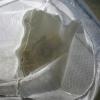
Collect Invertebrates to Determine Water Quality
Source Institutions
This activity (located on page 3 of the PDF under GPS: Alligator Habitat Activity) is a full inquiry investigation into organisms and the health of their ecosystems.
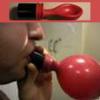
Under Pressure: Your Blood Pressure
Source Institutions
During this lesson, learners will determine their blood pressure and learn about systolic and diastolic pressures.
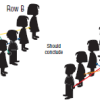
Target Recognition and Synapse Formation During Development
Source Institutions
In this activity about neuron/target muscle recognition (page 44 of the PDF), learners arranged in two rows facing away from each other use string to simulate neural development.
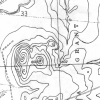
Blazing the Trail
Source Institutions
In this math lesson, learners estimate distances between landmarks and use a map and scales to determine the actual distances.
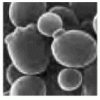
Fuel for Living Things
Source Institutions
In this activity, learners observe what happens when yeast cells are provided with a source of food (sugar). Red cabbage "juice" will serve as an indicator for the presence of carbon dioxide.

Layered Liquids: Chemistry You Can Drink
Source Institutions
In this chemistry activity (on page 2 of the PDF), learners make a layered drink with liquids of different densities.

Biochemistry Happens Inside of You!
Source Institutions
In this four-part activity, learners explore how the body works and the chemistry that happens inside living things.

Soapy Boat
Source Institutions
Learners discover that soap can be used to power a boat. Learners make a simple, flat boat model, put it in water, and then add a drop of detergent at the back of the boat.
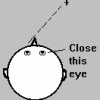
Our Sense of Sight: How We Perceive Movement, Depth and Illusions
Source Institutions
In this activity, learners investigate visual perception as well as plan and conduct their own experiments.
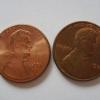
Polishing Pennies
Source Institutions
In this experiment, learners try different liquids to see which ones clean pennies best. Liquids to try include water, lemon juice, cola, vinegar, and dishwashing detergent.
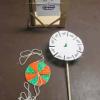
Spinning Illusions
Source Institutions
In this activity, learners construct three optical illusion toys to examine how our brains play tricks on what we see.
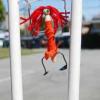
Gymnast
Source Institutions
In this physics activity, learners build a toy with a figure that spins around like a gymnast on the high bar.
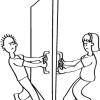
Human Interface Design: The Chocolate Factory
Source Institutions
In this activity about human interface design issues, learners help the Oompa-Loompas of a great chocolate factory solve different problems.
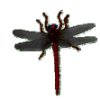
Going Buggy: Three Body Parts
Source Institutions
In this fun snack and craft activity, young learners make "Ants on a Log" and their own model of an insect. The purpose is to learn the three main insect body parts—head, thorax and abdomen.

Buoyant Bubbles
Source Institutions
What keeps bubbles and other things, like airplanes, floating or flying in the air?
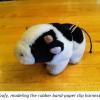
Zip Line Zoo
Source Institutions
In this activity, learners build a stuffed-animal zip line. Learners hold a cord against a wall, hook a cute stuffed animal onto it, let the animal slide down, and records its travel time.

Nature of Density
Source Institutions
In this activity learners will explore the concepts of density and matter in their quest to answer one simple question-will it sink or will it float?

Rollin’ Rollin' Rollin'
Source Institutions
In this physics activity (page 12 of the PDF), learners explore potential and kinetic energy by rolling different sized marbles down an inclined plane.
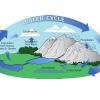
Moving Without Wheels
In a class demonstration, learners observe a simple water cycle model to better understand its role in pollutant transport.

Balancing Sculptures
Source Institutions
In this activity, learners will use a variety of household and/or natural objects to design a sculpture that balances from a single point.
